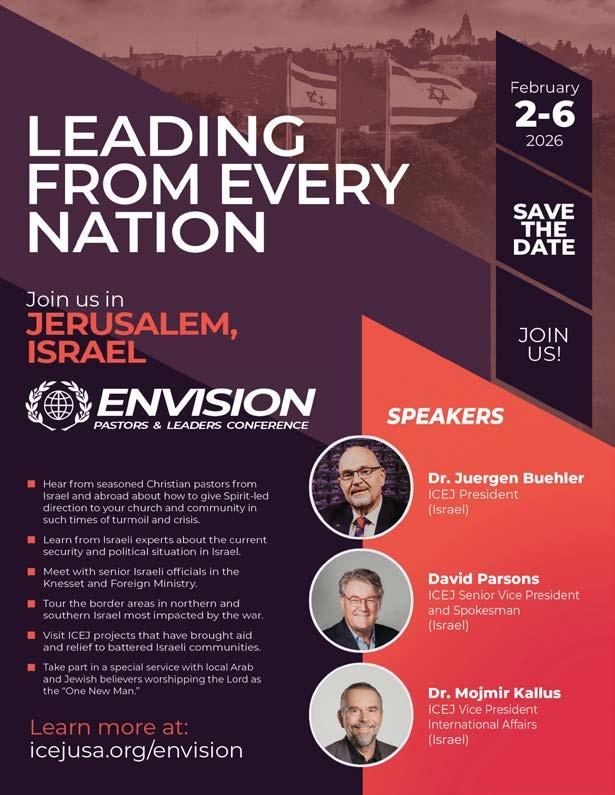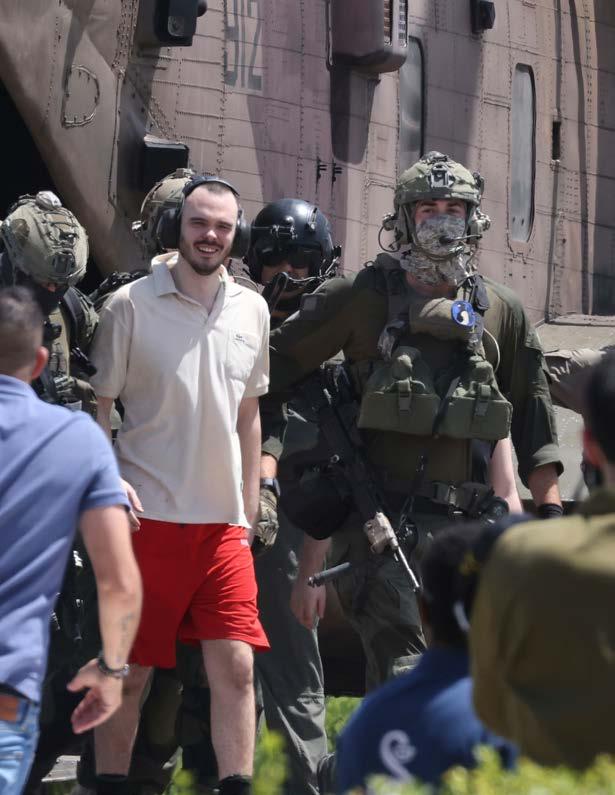

REACHING183 COUNTRIESFORISRAE L 45YEARSIN JERUSALEM
The International Christian Embassy Jerusalem was established in1980 in recognition of the biblical significance of all of Jerusalem and its unique connection to the Jewish people. Today the ICEJ represents millions of Christians, churches, and denominations to the nation and people of Israel. We recognize in the restoration of Israel the faithfulness of God to keep His ancient covenant with the Jewish people. Our main objectives are:
• To stand with Israel in support and friendship
• To equip and teach the worldwide church regarding God’s purposes with Israel and the nations of the Middle East
• To be an active voice of reconciliation between Jews, Christians, and Arabs, and to support the churches and congregations in the Holy Land
From its head offices in Jerusalem, the ICEJ reaches out into more than 170 countries worldwide, with branch offices in over 90 nations.
Our vision is:
• To reach every segment of Israel’s society with a Christian testimony of comfort and love
• To reach and actively represent to Israel the support of denominations, churches, and believers from every nation on Earth
The Christian Embassy is a non-denominational faith-based ministry supported by the voluntary contributions of our partners and friends across the globe. We invite you to join with us as we minister to Israel and the Jewish people worldwide by donating to the ongoing work and witness of the ICEJ.
FROM THE DESK OF THE PRESIDENT

Dear Friends,
The 2025 ICEJ Feast of Tabernacles (Sukkot) came to a close in mid-October. More than 1,500 Christians from 71 nations joined us for an unforgettable week of worship, teaching, and celebration—marking the largest solidarity mission to Israel since the war in Gaza began two years ago. From powerful messages and dynamic worship to communion at the Garden Tomb, every moment reflected unity and faith in action.
But most importantly, the Feast ended on an unexpected and deeply joyful note—with news that all 20 live hostages were released from Hamas control and reunited in Israel with their family members, thanks to the leadership of President Trump and Prime Minister Netanyahu. The operation was aptly named in Hebrew Shavim L’Gvulam, or “Returning to Their Border.”
The Feast of Tabernacles is the most joyous feast on God’s calendar, so when the hostages crossed back into Israel—profoundly, at the end of this Feast—it gave this year’s gathering in Jerusalem special meaning for all who were here. There was a sense of elation among our pilgrims and Israelis alike. We look forward to sharing more details and pictures with you in an upcoming issue.
In this issue, I’m sharing four excerpts from our powerful 100-day observance of prayer and teaching, focused on recovering the Jewish roots of our faith. These teachings examine the lasting impact of the Council of Nicaea—a defining moment in church history—but how its missteps toward the Jewish people have shaped the church ever since. I invite you to take time to read and reflect on them. You’ll also find a compelling article on Aliyah and the vital role Christians play in God’s end-time plan for Israel’s return, along with inspiring updates about the ongoing work of the ICEJ throughout Israel.
CREDITS
ICEJ President Dr. Juergen Buehler
USA President Dr. Susan Michael
VP International Affairs Dr. Mojmir Kallus
VP Finance David van der Walt
USA Director of Finance Barry R. Denison
Senior VP & International Spokesman David Parsons
USA Director of Communications Shannon Bennett
VP AID & Aliyah Nicole Yoder
Managing Editor/Publications Director Laurina Driesse
USA Managing Editor Karen Engle
Graphic Design/Illustrators Ryan Tsuen, Nancy Schimp
Photography Adobe Stock, Adobe Firefly, Shutterstock, GPO AP, Flash90, Yossi Zeilger-JAFI, iStock, Hostages and Missing Families Forum, Kateryna Maidannikova-UnSplash, Operation Lifeshield,Wikimedia, Wordpress, Dima Vazinovich/Getty Images, ICEJ Staff and Branches
The New King James Bible is used for all Bible references unless otherwise noted.
Word From Jerusalem is published by the International Christian Embassy Jerusalem. Reproduction in whole or in part without written permission is prohibited. Word From Jerusalem has no subscription price and is supported through contributions worldwide. The ICEJ USA Branch is a 501(c)(3) non-profit organization with offices in Tennessee, Florida, and Washington, DC. All gifts to this ministry are tax-deductible according to United States law.
We are living in extraordinary days. Though the war has ended, the battle for truth is far from over. Keep your eyes fixed on the East, remain steadfast in prayer for your nation and for Israel, and anchor yourself in God’s Word so you can stand firm in this critical hour (1 Corinthians 15:58).
Blessings from Jerusalem,

Dr. Juergen Buehler ICEJ President
COVER PHOTO: IDF soldiers bring home a rescued Israeli hostage from Gaza in 2024 (Credit-Ilia Yefimovich-dpa-AP Images)
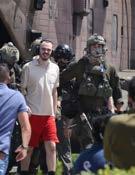
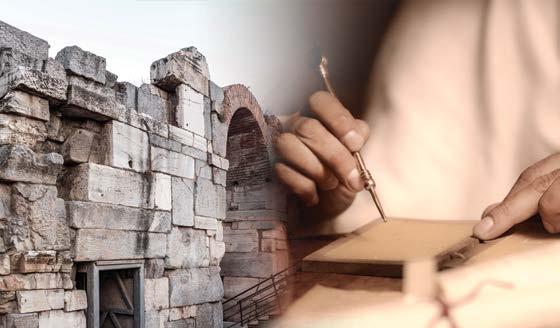
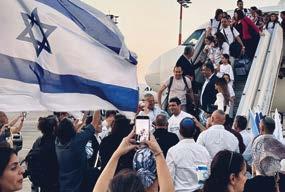
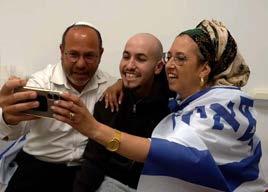
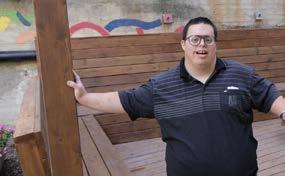
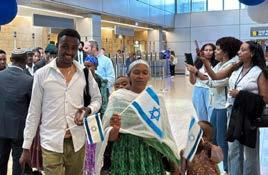
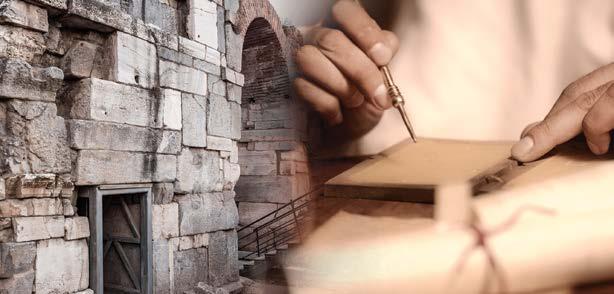
NICAEA REVISITED RECOVERING THE JEWISH ROOTS OF THE CHRISTIAN FAITH
This year marks 1700 years since the Council of Nicaea — a defining moment in church history. While its theological achievements are often celebrated, Nicaea also marked the beginning of a systemic detachment from Christianity’s Jewish roots.
This summer, the ICEJ held a special 100-day observance of prayer and teachings on Nicaea’s positive impact and its misstep toward the Jews. The four transcribed excerpts below offer key insights from the weekly online teachings, inviting both respect and repentance for Nicaea’s mixed legacy.
SEEDS OF DISPLACEMENT: THE EARLIEST FORM OF REPLACEMENT THEOLOGY
BY DR. JUERGEN BUEHLER, ICEJ PRESIDENT

Replacement theology—the belief that the church has replaced Israel in God’s covenantal plan—is not a modern error. Its roots stretch all the way back to the early days of the church, and even earlier.
One of the first examples appears in the story of the Samaritans. After the Assyrian exile of Israel’s northern tribes (2 Kings 17), foreigners were settled in northern Israel and adopted some local Israelite practices but merged them with idolatry. Over time, they claimed to be the true people of God. In John 4:22, Jesus refutes this directly: “You worship what you do not know; we know what we worship, for salvation is of
the Jews.” Far from endorsing syncretism, Jesus reaffirms Israel’s central role in God’s salvation plan.
Another early form of replacement thinking emerged through Gnosticism in the first century. Gnostics rejected the physical incarnation of Jesus and sought to detach the gospel from its Jewish roots. They denied the God of the Hebrew Scriptures and redefined Jesus as a temporary divine being. The apostolic response was strong: John writes, “Every spirit that does not confess that Jesus Christ has come in the flesh is not of God” (1 John 4:2–3).
Paul, likewise, defends the gospel’s Jewish foundation in Romans, Colossians, and Corinthians—reminding us that Jesus is a descendant of David and the fulfillmentof Israel’s promises.
Even within the apostolic church, the drift had begun. In 3 John, the beloved disciple warns of Diotrephes, a leader who rejected apostolic authority and refused to receive Jewish emissaries. He slandered them and cast out those who welcomed them. This episode shows how early the seeds of theological arrogance and disconnection from Israel were sown.
Tragically, the de-Judaizing of Christianity continued throughout history, culminating in the twentith century with Nazi Germany’s “De-Judaizing Institute”
within the Lutheran Church. Influential theologians like Gerhard Kittel contributed to erasing Jesus’ Jewish identity and recasting Christianity as anti-Jewish.
Today, similar ideas have resurfaced. Some argue the Old Testament reveals a different God or that it has been superseded entirely. But the Bible offers no such division. The New Testament proclaims Jesus as the fulfillmentof Israel’s Scriptures—not their replacement.
To avoid falling into the same error, we must recover the full counsel of God, rooted in both Testaments and in the covenantal history of Israel. This is not about theological correctness alone—it is about humility, memory, and fidelity to the story of redemption. Let us return to the roots that nourish our faith.
GET MORE INSIGHTS!
Long after Nicaea, the church is being called not just to remember an important council but to rediscover a timeless covenant. If these teachings have stirred your heart, scan the QR code to access a playlist of the full video series. Join the growing number of believers seeking to recover the Jewish foundations of our Christian faith—not as nostalgia, but as alignment with God’s unfolding plan of redemption.

THE HIDDEN SHIFT: UNCOVERING THE TREASURES BURIED AT NICAEA
BY REV. DR. PETRA HELDT, DIRECTOR, ECUMENICAL THEOLOGICAL RESEARCH FRATERNITY IN ISRAEL

Hosea 4:6 warns, “My people are destroyed for lack of knowledge.” This loss of spiritual clarity became tragically evident at the Council of Nicaea in AD 325, where a subtle but decisive shift disconnected the church from its Jewish roots.
The early church was born in Jerusalem, nurtured in synagogues, and shaped by covenants made with Abraham, Moses, and David. Yet by the fourth century, political power and theological influence had moved westward.
At Nicaea, theological terms foreign to Scripture [like homoousios, meaning “of the same substance” or “of one essence,” used in the Nicene Creed to affirm that the Son is of the same essence as the Father] entered the church’s core vocabulary, recasting the faith through Greek philosophical lenses.
One of the clearest breaks came in the dating of Passover. Until then, many Christians celebrated Passover on Nisan 14, as taught by John and practiced by churches in Asia Minor. But Emperor Constantine pushed for a calendar free from Jewish ties: “It appeared unworthy,” he wrote, “to follow the custom of the Jews.”
This was more than liturgy—it was a theological realignment that obscured the Jewish identity of Jesus and the apostolic church.
Yet the light was never extinguished. Remnant communities, and today’s messianic believers, preserved the flame. Our task is to uncover these treasures, not to undo the creed—to restore their full meaning, rooted in Israel’s story and fulfilled in the Messiah.
ERASED FROM THE CREED: NICAEA AND THE ROOTS OF CHRISTIAN ANTISEMITISM
BY DR. PAUL O’HIGGINS, FOUNDER OF RECONCILIATION OUTREACH

The Council of Nicaea is widely praised for affirming the divinity of Jesus and unifying the church. Yet it also introduced a theological omission with long-lasting consequences: the near-complete removal of Israel from the church’s liturgy and identity.
The Nicaean Creed skips over the entire story of Israel—from Abraham and Moses to the prophets and covenants— leaping straight from creation to Christ’s incarnation. This omission helped normalize a theology in which the church replaced Israel as God’s covenant people.
That mindset was codified through specific actions. At Nicaea, the church broke from the biblical Passover calendar and established Easter independently from Jewish reckoning. Emperor Constantine made his intention clear: “Let us have nothing in common with this detestable people.”
These decisions marked the rise of formal Replacement Theology, a framework that disconnected Jesus from His Jewish context and silenced the ongoing relevance of God’s promises to Israel.
As a seminary-trained theologian, I can testify that the Abrahamic and Davidic covenants were rarely mentioned in Christian education. Yet the New Testament proclaims otherwise. Mary celebrates God’s covenant with Abraham (Luke 1), Peter speaks of “the restoration of all things” (Acts 3:21), and Paul reminds us that "the gifts and the calling of God are irrevocable” (Romans 11:29).
Today, the restoration of Israel is unfolding before our eyes. The church must revisit what Nicaea omitted and replant itself in God’s ongoing covenant with His people.
A COVENANT UNBROKEN: THE LAND PROMISE IN THE NEW TESTAMENT
BY DR. GERALD MCDERMOTT, ANGLICAN THEOLOGIAN AND AUTHOR

Many Christians have long believed that God’s promise of land to Israel was spiritualized or rendered irrelevant by Christ’s coming. Yet the New Testament tells a different story.
While less prominent than in the Hebrew Bible, the land promise is still present—and assumed. Hebrews 11 affirms Abraham’s expectation of a specific inheritance. Acts 7 and 13 recount God’s gift of the land to Israel. Neither text reinterprets nor retracts that promise.
In Acts 1:6, the disciples ask if Jesus will restore the kingdom to Israel. He doesn’t correct them—He simply says the timing is not for them to know. The expectation remains valid. Paul’s statement in Romans 11:29, “The gifts and the calling of God are irrevocable,” includes the land, which was central to Jewish identity. Even Revelation affirms a future for the land. Jerusalem is called “the holy city” (Revelation 11, 21), and the twelve tribes are honored. The storyline of redemption remains rooted in both a people and a place.
The land promise was never abolished. It was reaffirmed and illuminated by the Messiah. To rightly understand the gospel, the church must once again embrace the full scope of God’s covenant with Israel— land included.
Learn more about the foundations of the Christian faith—not as nostalgia, but to align with God's unfolding plan of redemption. Scan the QR code to access a playlist of the full Nicaea video teaching series.
STANDING IN THE GAP
Our Role in God’s End-Time Plan for Israel’s Return
BY HOWARD FLOWER, ICEJ ALIYAH DIRECTOR
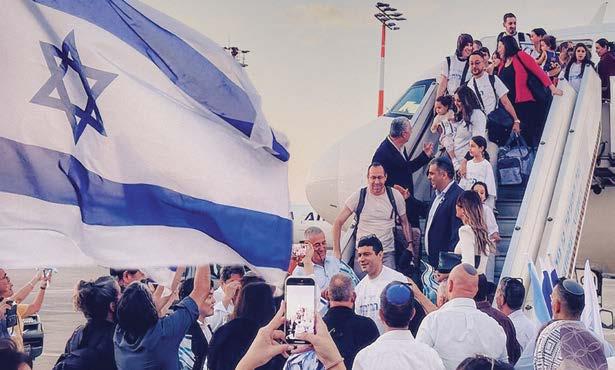
In the quiet, hushed moments before a plane carrying new immigrants touches down at Ben Gurion Airport, you can feel the weight of history shifting. The doors open, and the passengers—families from France, singles from North America, Beta Israel from Ethiopia—step onto the tarmac. Many kneel to kiss the ground. Some weep. All are home.
This is Aliyah, the return of the Jewish people to the land of Israel. And in our time, this ancient prophetic promise is being fulfilled before our eyes, driven by a force as old as the exile itself: a terrifying resurgence of antisemitism.
For the gentile and Jewish believer watching the news with a heavy heart, the headlines can feel overwhelming. Synagogues defaced. Jewish students harassed on university campuses. Deadly attacks in supermarkets and prayer halls. The ancient hatred has put on modern clothes, emerging from the far-right, the far-left, and radical Islamism with a viciousness many thought was consigned to history books. It is easy to give in to despair, but we must not. We are called to see with prophetic eyes. What the enemy intends for evil, God is using for good (Genesis 50:20). This wave of hatred is, tragically and sovereignly, becoming a primary catalyst for the greatest ingathering of the Jewish people in modern history.
The Unmistakable Connection: From Persecution to Promise
The link between antisemitism and Aliyah is not a coincidence; it is a principle woven into the fabric of Zionism and Scripture. The State of Israel was founded as a refuge, a direct response to the centuries of persecution that culminated in the Holocaust. Its very raison d'être is etched with the memory of pogroms,
inquisitions, and gas chambers. Israel’s Law of Return—which grants every Jew the right to citizenship—is a legal testament to a solemn vow: “Never again will our people be homeless in the face of hatred.”
The period from 2015 to 2018 provided a stark, modern case study. Following a series of brutal Islamist attacks in France, including the siege of a kosher supermarket where Jews were explicitly targeted for being Jewish, Aliyah from Western Europe surged to record levels. These were not primarily religious zealots; they were secular, middle-class professionals who loved their home countries. But the constant pressure of fear—the verbal abuse, the cemetery desecrations, the need for armed guards at schools and synagogues—became an unbearable weight.
They were not just leaving France; they were fleeing to Israel. They were choosing life.
Today, we see this pattern accelerating globally. The illusion of safe assimilation has been shattered. A Jewish person can no longer assume safety in London, Paris, or New York. This collapse of security is a powerful “push factor” forcing a generation to ask: What will life here be like for my children? And in asking that question, they turn their eyes toward Zion.
The Divine Blueprint: First the Physical, Then the Spiritual
As believers, we must interpret these events through the lens of God’s Word, not merely through the panic of the 24-hour news cycle. The prophets provide a clear, two-stage blueprint for Israel’s restoration, and what we are witnessing is the breathtaking fulfillment of the first stage.
The Scriptures are unequivocal: God promises to first bring His people back to the Land physically, regardless of their spiritual state. He declares through Ezekiel: “For I will take you from the nations, gather you from all the lands, and bring you into your own land” (36:24 NASB). Only after this physical restoration does God promise the spiritual renewal: “Then I will sprinkle clean water on you, and you will be clean . . . I will give you a new heart and put a new spirit within you” (Ezekiel 36:25–26 NASB).
God accomplishes this physical return using both the gentle call and the stern push. He speaks of sending “fishermen” to draw them with the promise of Zion (Jeremiah 16:16). But He also sends “hunters”—a metaphor for the persecutors and pressures that hunt them from every mountain and hill, compelling them toward their only safe haven.
The current global resurgence of antisemitism is a form of these “hunters.” It is a severe mercy. While God does not author the evil—He is grieved by it—in His sovereignty, He uses the wrath of man to praise Him (Psalm 76:10) and to accomplish His covenantal purposes. He is leveraging the darkest impulses of humanity to gather His children to the one place He has ordained for their ultimate protection and, one day, their spiritual redemption.
This is why we must not see Aliyah as a purely political or humanitarian phenomenon. We are witnessing the pages of prophecy turning. Every flight from Kyiv, every family arriving from Paris, is a living testament to the faithfulness of a God who keeps His promises.
Our Call to Action: How to Align with God’s Plan
This is not a time for passive observation. We are called to be active participants in this divine drama. The biblical model for how gentiles should assist in this return is powerfully demonstrated in the story of Cyrus the Great (Isaiah 45:1). This pagan king, an unbeliever, was called God’s “anointed” because he was stirred by God to issue the decree that freed the Jews from Babylonian captivity and funded their return to Jerusalem to rebuild the temple (Ezra 1:1–4).
Today, God is still stirring the hearts of gentiles—especially believers—to fulfill this Cyrus-like role. Here is how we can align ourselves with God’s end-time plan:
1. Speak Out with Courage
In a world where antisemitism is often disguised as political criticism, silence is complicity. We must be unequivocal in our condemnation of hatred against the Jewish people, whether it comes from the right, the left, or from religious extremism. Our voices must be a clear sound of solidarity, telling our Jewish friends and neighbors, “You are not alone.”
2. Provide Practical Support
The journey of Aliyah is costly. The work of welcoming and absorbing hundreds of thousands of immigrants is a monumental task for the nation of Israel. We can be the modern-day vessels of Cyrus by supporting the organizations on the front lines. By giving to ministries that
fund flights, provide housing, and offer Hebrew classes, we are not just donating to a charity; we are funding prophecy. We are paying for the tickets that bring God’s people home.
3. Advocate and Defend
We must support Israel’s right to exist as a Jewish state and its fundamental right to defend itself. A safe and secure Israel is the necessary destination for this Aliyah. This means engaging in the political process, educating our communities, and rejecting the lies of delegitimization that seek to undermine Israel’s very right to exist.
4. Pray with Purpose
Prayer is the engine of this work. We are to “pray for the peace of Jerusalem” (Psalm 122:6). Pray for the protection of Jewish communities worldwide. Pray for the peace and safety of Israel. Pray that God would stir the hearts of His people to come home. Pray for the resources and the open doors needed for this great exodus. And pray for the spiritual awakening that will follow the physical return—that the eyes of the Jewish people would be opened to recognize their Messiah.
5. Bless with Humility
Our support must be offered in a spirit of humility and love, recognizing that we are participating in a story far greater than ourselves. We are grafted into the rich olive tree of God’s promise (Romans 11:17–24), and we are called to bless the natural branches. We must repent of the centuries of Christian antisemitism that contributed to this scourge and now strive to be a source of unconditional blessing (Genesis 12:3).
A Final Word of Encouragement
To the Jewish believer feeling the weight of this hour: be encouraged. The God of Abraham, Isaac, and Jacob is on the move. The fear you feel is not a sign of weakness but a prompting of the Spirit. It is the “nudge” toward the destiny God has for you and your family in your ancestral homeland. Do not see your potential Aliyah as a flight from fear, but as a courageous step into the future God has promised you—a future of hope, safety, and purpose.
To the gentile believer: we have been given the extraordinary privilege of living in a time of prophetic fulfillment. We are not mere spectators. We are called to be modern Cyruses—stirred by God to facilitate the return. Let us not be found sleeping. Let us be a generation that stands in the gap, speaks up, gives generously, and prays fervently for the restoration of Israel.
The cloud of antisemitism is dark, but it contains a silver lining of glory. It is driving the Jewish people home. And in helping them, we are not just aiding refugees; we are aligning ourselves with the unstoppable, end-time plan of the God of Israel.
We are participating in the great story of redemption, and there is no greater privilege.
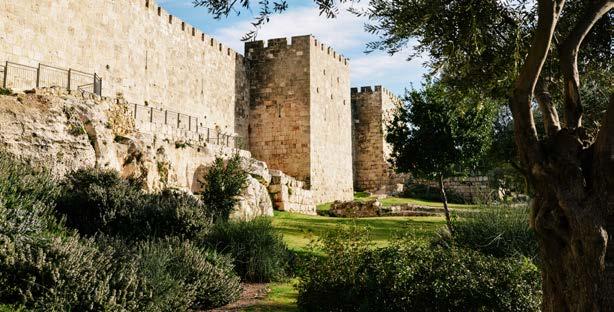
THE WATCHMAN’S CALL IN OUR DAY
BY DR. TYSON LAMBERTSON, ICEJ USA OUTREACH DIRECTOR
Ezekiel 33:7–9 (ESV) gives us one of the most sobering assignments in Scripture:
So you, son of man, I have made a watchman for the house of Israel. Whenever you hear a word from my mouth, you shall give them warning from me. If I say to the wicked, O wicked one, you shall surely die, and you do not speak to warn the wicked to turn from his way, that wicked person shall die in his iniquity, but his blood I will require at your hand. But if you warn the wicked to turn from his way, and he does not turn from his way, that person shall die in his iniquity, but you will have delivered your soul.
God didn’t call Ezekiel to a comfortable job. The watchman’s post wasn’t about prestige; it was about responsibility. Sitting high on the city’s walls, the watchman could see what others could not, sounding the alarm before danger arrived and keeping the people ready. In God’s kingdom, silence in the face of danger is not just unwise, it’s a betrayal of the trust He’s placed in us.
David Guzik says it plainly: “A watchman who failed to speak was as guilty as the enemy who attacked, because his silence allowed destruction to come.” That shakes me. God’s measure of our faithfulness is not whether everyone listens, but whether we obey and speak His Word when He gives it.
The late Dr. George O. Wood once said, “The watchman’s responsibility is not to make people respond, it is to make sure they have been told. If you speak the truth in love and they reject it, that’s between them and God. But if you stay silent out of fear or convenience, you share in their loss.” I can’t read Ezekiel 33 without hearing those words in my spirit.
The Watchman and Israel Today
This calling isn’t just ancient history. It speaks directly to the church’s relationship with Israel right now. Dr. Gerald McDermott has pointed out that many pastors won’t address God’s ongoing purposes for Israel either because they’re afraid of controversy or because they’ve misunderstood Scripture. Yet Ezekiel’s commission doesn’t give us the option to be silent.
ICEJ Senior VP and Spokesman David Parsons states, “The watchman’s call today includes warning against theological
currents that strip Israel from God’s redemptive plan. To neglect this is to leave the flock vulnerable to deception.” ICEJ President Dr. Juergen Buehler adds that in our era of rising antisemitism, pastors must be watchmen both spiritually and morally, teaching biblically and refusing to let indifference take root in the church.
However, the late Jack Hayford often reminded us that the watchman’s role isn’t just about warning—it’s also about announcing hope. For Ezekiel, the urgency came from impending judgment. For us, the urgency is even greater because “our salvation is nearer than when we first believed” (Romans 13:11).
Standing the Post
Some critics of biblical Zionism claim that focusing on Israel distracts from the gospel. I couldn’t disagree more. The gospel is rooted in God’s covenant promises, and those promises include His enduring commitment to Israel (McDermott). To remove Israel from God’s plan is to rewrite the very story of redemption. The watchman’s task is forward-looking—it’s about being ready for the day when we will give an account to God. Jesus Himself told us in Matthew 24 and Luke 21 to “stay awake” and “watch.” This isn’t just about reading headlines—it’s about preparing God’s people for the fulfillment of His covenant promises, including the physical and spiritual restoration of Israel.
The prophetic horizon right now is ready. This is not the moment to step down from the wall. It’s the time to stand our post, lift our voice, guard covenant truth, and proclaim the hope of the kingdom that’s coming.
References
Buehler, J. International Christian Embassy Jerusalem teachings on Israel and antisemitism. International Christian Embassy Jerusalem. www.icej.org.
ESV. The Holy Bible, English Standard Version. Crossway Bibles. 2001. www.esv.org.
Guzik, D. Commentary on Ezekiel 33, par. 4. Enduring Word. www.enduringword. com/bible-commentary/ezekiel-33/.
Hayford, J. Israel: A Blessing or a Burden? Regal Books, 2002.
McDermott, G. Israel Matters: Why Christians Must Think Differently about the People and the Land. Brazos Press, 2017.
Parsons, D. The Watchman’s Call and Israel’s Place in God’s Plan (par 2), International Christian Embassy Jerusalem. www.icej.org.
Wood, G. O. Living in the Spirit: Drawing Us to God, Sending Us to the World. Gospel Publishing House, 2014, p. 97.
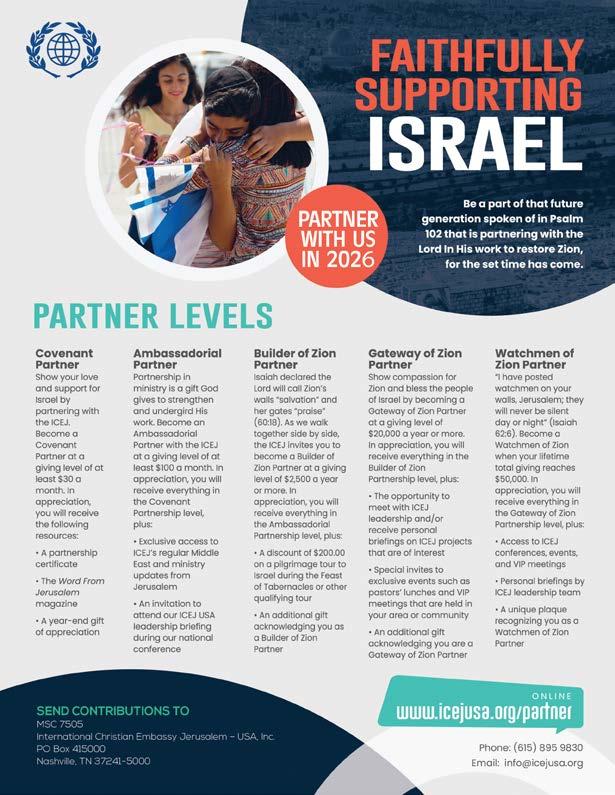
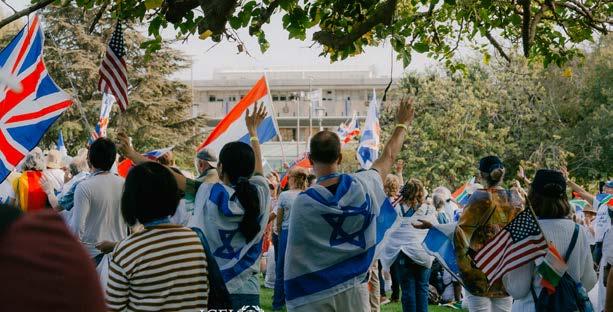
REJOICING WITH ISRAEL AS HOSTAGES RETURN HOME
BY SHANNON BENNETT, ICEJ USA COMMUNICATIONS DIRECTOR

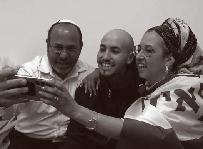
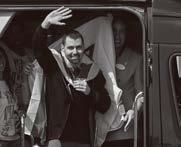
Praise God—every one of the surviving hostages held by Hamas has returned home! The International Christian Embassy Jerusalem USA (ICEJ USA) joins the people of Israel and believers around the world in thanksgiving to God for this miraculous deliverance. Their release came on the final day of Sukkot, the Feast of Tabernacles—a biblical celebration when the Jewish people rejoice in God’s faithfulness, provision, and His presence dwelling among them.
“What a moment of divine timing and joy,” said Dr. Susan Michael, president of ICEJ USA. “The sons of Israel have come home during a feast that celebrates God’s sheltering presence among His people. We rejoice with every family reunited and thank God for His mercy that always triumphs.”
Under the terms of the agreement, all surviving hostages were home by Simchat Torah, which this year fell exactly two years from the October 7, 2023, attacks on the Hebrew calendar. Simchat Torah—meaning “rejoicing in the Torah”—marks both the completion and renewal of the annual cycle of Scripture readings. What a powerful reminder that God’s Word and promises never fail.
“How fitting that this moment of deliverance coincides with the Jewish people rejoicing in the Torah,” Michael added. “It reminds us that God’s Word is alive and unshakable. The same God who brought His people through the wilderness is still their defender and deliverer today. This gives us great hope that the remaining bodies of deceased hostages will soon be released and laid to rest in Israel.”
As we celebrate this incredible answer to prayer, let us also remember the families who still grieve and the nation that continues to heal. Many of the details of the agreement are still being finalized, and vigilant prayer is needed—for the continued healing of survivors and their families, for those who still mourn and await the bodies of their loved ones, for wisdom for Israel’s leaders, and for a new era of cooperation across the region.
“Today we celebrate the goodness and faithfulness of God,” Michael said. “But we also renew our commitment to stand with Israel until she dwells securely in the land promised by God. The Guardian of Israel neither slumbers nor sleeps—and neither will we in our prayers, support, and advocacy.”
Former hostage Evyatar David Hostages and Missing Families Forum
Former hostage Eitan Mor (center) is reunited with his parents. Photo via Israel GPO
Former hostage Guy Gilboa-Dalal Photo Credit: Dima Vazinovich/Getty Images
We gratefularefor
Angela Boren and Jack and Paula Petry
ICEJ USA WATCHMAN OF ZION PARTNERS!
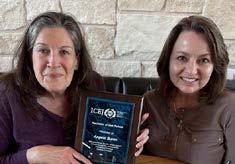
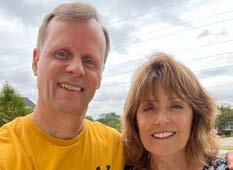

GET TO KNOW YOUR ICEJ USA TEAM

HANNAH RATHER
IT & Project Coordinator
Hannah is our IT & Project Coordinator here at ICEJ USA. With a background that blends creativity, innovation, and organization, Hannah brings energy and excellence to everything she does, playing a key role in keeping our technology and internal systems running smoothly. From managing IT support and donor platforms to coordinating cross-departmental projects, Hannah ensures that every process flows efficiently, so our team can stay focused on its mission.
Hannah’s passion for leadership and administration started early. Her family has run a racecar business for over 50 years, instilling in her a strong work ethic and entrepreneurial spirit. At just 16, she landed an internship with the Foursquare Church National Offices, which opened the door to more than a decade of service in the Worship and Creative Arts Department at a church in Anaheim, CA. Today, she also helps run her family’s manufacturing company and novelty golf ball brand—continuing that legacy of innovation and creativity.
Outside of her work with the ICEJ USA, Hannah and her husband, Riley—a Michelin Star Chef—are expecting their first baby girl in December. Together with their two mini-Goldendoodles, Sunny and Skye, they love traveling, cooking, and spending time with family and friends.
Hannah says she sees her role at the ICEJ USA as a way to help the ministry thrive behind the scenes. By developing better systems and leveraging technology, she helps ensure that every donation, message, and outreach effort operates seamlessly. For her, it’s about creating the structure that allows ministry to flourish.
“When I visited Israel in 2010, I felt an overwhelming sense of home of which I could not explain at the time. My love for Israel before this trip and after only continues to grow as it does for my whole family because we know how much God loves Israel.” —Paula Petry
Israel holds a special place in Hannah’s heart. She first visited Israel in 2023 and describes the experience as life-changing. “Israel is important to me because it’s at the heart of God’s story—His covenant, His promises, and His faithfulness,” says Hannah. “I feel so honored to be part of a ministry that blesses Israel and stands with the Jewish people, knowing that in doing so, we’re taking part in something so much bigger than ourselves.”
Hannah’s favorite verse is Isaiah 58:11: “The Lord will guide you continually, giving you water when you are dry and restoring your strength. You will be like a well-watered garden, like an ever-flowing spring.”
Angela Boren with ICEJ USA's Director of Development Natalie Adams
ICEJ BRIDGES ISRAEL’S DIGITAL DIVIDE BY REVITALIZING OLD COMPUTERS
BY NATIVIA BUEHLER, ICEJ AID ADMINISTRATOR
The sound inside the Ramot social computer lab is not the whirr of brand-new machines. Instead, it is the clatter of old laptops being taken apart, rewired, and given a second life.
For several years, the ICEJ has supported a special social aid project, helping to refurbish discarded computers and place them in the hands of those who need them most. In doing so, the lab provides struggling Israeli families with access to technology, while also equipping at-risk youth with practical computer skills, all to bridge divides in Israel’s diverse communities.
Ramot, a sprawling neighborhood in northwest Jerusalem, reflects Israel’s social divides nationwide. Middle-class families live alongside households struggling to make ends meet, and for many, access to a working computer is a luxury. Thousands of Israeli schoolchildren still lack a home computer, a gap that the ICEJ’s ongoing support is helping to close, one laptop at a time.
Over the past year alone, the project has recycled around seven tons (the weight of two medium trucks) of electronic waste, redirecting it from landfills into 473 refurbished computer kits. These were donated to families, schools, and youth organizations, ensuring that more children and teens have the tools they need to learn and thrive.
Behind the statistics are remarkable personal stories that would not be possible without your support. The lab has welcomed 61 volunteers this year, among them teenagers, high school students, and young adults with disabilities. Working side by side to repair computer equipment and distribute laptops, many discovered new confidence and purpose.
When she began her national service at the lab two years ago, one young woman was painfully shy, avoiding meetings and conversation. Gradually, the quiet routine of repairing laptops with others helped her gain confidence and connection. Today, she greets families at the door with warmth, runs training sessions for new recruits, and is even pursuing studies in computer science—a transformation that her former self could hardly have imagined.
Another encouraging story involves a boy who had slipped through the cracks, dropping out of school with little hope of return. The lab’s technician training was his last chance. In only months, something clicked. He mastered the repairs, re-enrolled in school, completed his matriculation, and is now a staff technician himself. Soon, he will enlist in a technological unit of the Israel Defense Forces, a future that seemed far beyond his reach just a few years ago. Another young man with disabilities joined through his school’s occupational program. What began as a tentative placement became a home. He stayed there for years, fixing computers, mentoring newcomers, and establishing himself as a trusted member of the team. Now, he, too, is preparing to serve in the army in a technical role—a path once closed to him but now made possible through your support.
The lab’s reach goes far beyond the teenagers who crowd its benches. Across Jerusalem, Ashkelon, and other Israeli cities, needy families can now access working computers that would have been previously out of their reach. For many children, these second-hand machines are their first true window into the wider world, where homework can be typed and lessons streamed, while ambitions quietly take root.
At heart, it is a simple idea: take what others discard and breathe new life into it. Yet in doing so, the lab restores more than just old laptops. It restores dignity to families who have gone without and possibilities to young people who thought doors were closed to them. Its impact is nothing short of transformative in a Jerusalem neighborhood often fractured by social and economic divides. As the lab team put it, with pride: “The ICEJ’s support for our youth means the world to us, but most of all, to them. We hope you were able to see the lives you have touched.”
You, too, can give hope and help shape the future of Israel’s youth. Your support ensures that more young people and families can step confidently into a brighter tomorrow.


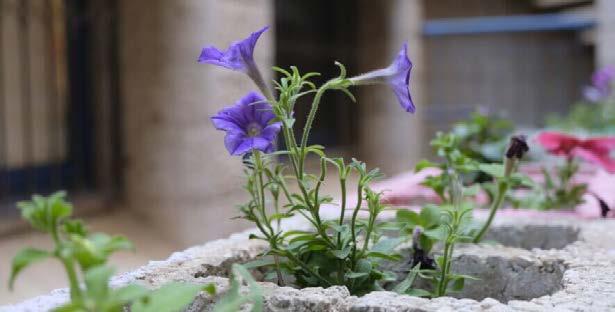
ICEJ USA HELPS CULTIVATE PURPOSE FOR ISRAELI ADULTS WITH DISABILITIES
BY NATIVIA BUEHLER, ICEJ AID ADMINISTRATOR
During a recent visit to a therapeutic medical clinic in Jerusalem, the ICEJ AID team heard a startling statistic: “In Israel, one in five people live with physical, cognitive, sensory, or mental health challenges,” said Ye’ara, a senior manager at the clinic. “That is why opportunities like this are rare and invaluable.”
Ye’ara was speaking of a beautiful new garden that the ICEJ USA Branch is supporting to help Israeli adults with severe disabilities in developing skills, confidence, friendships, and a true sense of purpose. This innovative garden will give these worthy recipients a second chance at building a productive and meaningful life.
It was so encouraging for our ICEJ AID team to find the garden alive with laughter, the scent of fresh herbs, and the warmth of sunlight shining down on a thriving green oasis.
The participants range in age from their early 20s to over 60. Most were born with conditions like Down syndrome or autism, while others acquired disabilities later in life due to accidents. Despite the age differences, they are united in their need for structured support and a place where people believe in them. This is not a program with an expiration date. Many will continue coming for years, learning, working, and returning each week—even after securing jobs elsewhere. For them, this center has become a community that feels like family.
Some participants require constant supervision, while others are preparing for jobs in cafés, offices, and other workplaces. Those already employed often return once a week to share experiences and problem-solve together. “It’s a place to check in, get advice, and feel supported,” Ye’ara explains.
Among the most cherished features is the garden itself, which staff describe as a form of therapy. Green spaces are known to reduce stress, improve mood, and provide sensory and emotional
benefits for people with disabilities. Cultivating plants teaches patience, responsibility, and the joy of nurturing life. “The garden is important for them to watch life grow all around them, and it gives a sense of accomplishment and peace,” says Ye’ara.
She shares one of many testimonies: “One young man, who now works at a local café, still comes back every Tuesday. He’s always so excited to see everyone and share how his week went. It’s like he carries the encouragement from here into his job and then brings his experiences back to inspire others.”
For many, this program focuses on building essential life skills like using public transport, cooking, and managing money, with reading, writing, and math integrated into daily activities. Field trips to places like supermarkets reinforce learning in real-world settings. Using the Feuerstein method, participants develop cognitive abilities such as comparison, reasoning, and problemsolving before advancing to job training in areas like archiving, customer service, gardening, and café work.
When the center first began, there were only 38 participants. Today, there are 90, with room to grow after recent renovations. In addition, 28 graduates are now employed in the wider community. “This is not charity work. It is not ‘keeping people busy.’ It’s meaningful work, with fair pay, dignity, and expectations,” Ye’ara explains.
Nationally, hundreds of thousands of working-age adults with disabilities face barriers to employment and often earn far less than their peers. This center demonstrates what is possible when the focus is on ability, not limitation.
Help build essential life skills for disabled adults in Israel today.

ICEJ HELPS SMALL BUSINESSES IN NORTHERN ISRAEL REBUILD
BY NATIVIA BUEHLER, ICEJ AID ADMINISTRATOR
You most likely know the phrase: “Give a man a fish and you feed him for a day; teach a man to fish and you feed him for a lifetime.” That saying captures the heart of what follows.
When the war broke out, life in Israel’s north stopped overnight. Families were evacuated, entire towns emptied, and businesses that had taken years to build were shuttered, with no time to prepare. For many, the challenges escalated when tens of thousands of men and women were called up for military reserve duty, leaving their families to manage households alone.
Across the country, about 130,000 reservists were serving this summer, according to the Israel Defense Forces, with more than 60,000 newly called up and another 20,000 extended in their service. For families in the north, already uprooted by evacuation, the effect was devastating. Households suddenly operated as single-parent homes, often with mothers juggling traumatized children and the uncertain future of their businesses.
Today, an ICEJ-sponsored support program walks alongside these business owners in the hard-hit northern towns of Shlomi and Ma’ale Yosef. ICEJ first supported 62 small businesses. This seed funding helped launch a program that now reaches 460 businesses across Israel’s north and south. Each receives a tailored plan to meet their unique needs, ranging from business coaching and marketing support to help with branding, accessing government benefits, and sometimes direct grants. The program’s goal is not merely survival, but long-term recovery: restoring income, building resilience, and supporting the revitalization of local communities.
The impact is clear in Shlomi, near Lebanon. Yochai, a respected martial arts coach, once ran a thriving studio for 170 kids, teaching discipline and respect. But evacuations scattered his students, his gym closed, and a serious injury while serving in the reserves compounded his losses.
Now, months later, Yochai has returned, but to a different reality. Only 30 students have returned, while rent debts weigh heavily on

him. “I don’t want to give up,” he said, and explained his efforts to rebuild with the help of a business mentor and digital advertising grants. “The kids need a place like this. And I need to make it work.” ICEJ support has provided him with mentoring and grants, helping Yochai rebuild his school and keep his students engaged. By spring, he hopes to have 100 students back on the mats.
Not far away, Orly, a caterer, refused to let the evacuation stop her. From her hotel room in Jerusalem, where she was evacuated with her children while her husband was on reserve duty, she continued cooking meals for fellow evacuees. Her small homebased business once brought in about 100,000 Shekels annually, supplementing her regular job. Today, she is back in Shlomi, trying to rebuild her customer base while working part-time to keep her family afloat. Through ICEJ’s support, Orly received digital promotion training and is reconnecting with customers and regaining momentum for her business.
For business owners like Yochai and Orly, rebuilding is a journey. Through this program’s targeted support and their determination, these entrepreneurs are not simply returning to the past but creating stronger, renewed businesses that contribute to the future of northern Israel.
Municipal leaders emphasize that these are just the first steps. By supporting business owners to restart and renew, the program seeks not only to provide for families but to restore the vital economic and social heartbeat of northern Israel.
Thank you for standing with Israel during this challenging time. Please consider donating to help families and small businesses rebuild through our ICEJ AID fund.

Orly, a caterer, helped by the ICEJ
REBUILDING KIBBUTZ BE’ERI
HELP REBUILD THE BE’ERI YOUTH CENTER IN ISRAEL
On October 7, 2023, Kibbutz Be’eri suffered one of the deadliest terror attacks in Israel’s history. Over 130 residents were killed or kidnapped— including 51 elderly—and more than 120 homes and 13 public buildings were destroyed. Among them was the youth activity center, once a safe and joyful space for elementary school children.
SUPPORT ISRAEL’S TRAUMATIZED FAMILIES
In April 2025, construction began on a new, secure youth center in Kibbutz Be’eri—designed as a vibrant space for learning, healing, and summer programs for returning families. More than a building, it will serve as a lifeline for a generation of traumatized Israeli children. Completion is expected by October 2026.
YOUR DONATION MATTERS
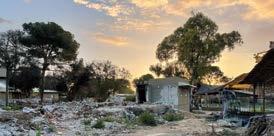

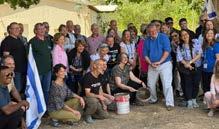
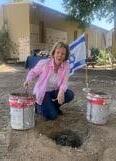
By giving to this urgent rebuilding effort, you are:
• Helping Israeli children heal from trauma
• Supporting a war-torn community through education and emotional recovery
• Fulfilling Isaiah 60:10: “Foreigners will rebuild your walls”
National Representatives
and Susan Michael
help pour cement ... HELP US REBUILD!
Your gift declares to Israel: “You are not alone—American Christians are standing with you.”
Donate today at: www.icejusa.org/returnandrebuild

ICEJ
(top)
(left)

FULFILLING A DREAM ICEJ Helps Bring Ethiopian Jews Home to Israel
BY HOWARD FLOWER, ICEJ ALIYAH DIRECTOR
For generations, Jewish families in Ethiopia held fast to a dream: to return to their ancestral homeland, Zion. For many, this was a hope passed down through the ages, a prayer whispered in the face of hardship and persecution. This year, thanks to the steadfast support of our donors, the International Christian Embassy Jerusalem has been privileged to help answer that prayer. We are thrilled to report that in partnership with the Jewish Agency for Israel (JAFI), our generous gifts have supported the Aliyah and initial absorption of over 100 new immigrants from Ethiopia in 2025.
These are not just numbers. They are mothers, fathers, and children whose long wait is finally over. After decades of longing, they have exchanged a life of fear for one of hope—welcoming the Jewish New Year, Rosh Hashanah, in Israel this past September for the very first time. This was not merely a calendar event; for them, it marked the start of a new life, a new chapter written in the land of their ancestors.
Between January and August of this year, 107 Ethiopian olim (new immigrants) arrived in Israel. The majority, a group of 74 individuals, were settled in the Beit Alpha absorption center, with smaller groups finding their first home in Israel in centers in Be’ersheva and Ashkelon. From the moment they stepped off the plane, a comprehensive and compassionate process began, designed to welcome them and lay the foundation for a successful future.
Upon arrival, adults immediately enrolled in Hebrew Ulpan classes, the essential first step toward integration. Children were registered in local schools, many stepping into a classroom for the very first time. JAFI’s dedicated staff—directors, social workers, and counselors—work tirelessly to guide each family through the practicalities of their new life: opening bank accounts, registering with health clinics, and navigating government offices.
But absorption is about more than bureaucracy; it is about healing, connection, and building a new identity. Families participate in workshops on health, nutrition, and home safety. They join orientation tours and receive both individual and group counseling.
Through the “Yesodot” (Foundations) program, children receive vital educational support to bridge gaps, while summer activities blend learning with play.
Perhaps most profoundly, these new Israelis are connected to the soul of their nation. They have visited the bustling streets of Tel Aviv and, most meaningfully, have made an emotional pilgrimage to Jerusalem’s Old City and the Western Wall. To see them weep, rejoice, dance, and pray at this holiest of sites is to witness prophecy fulfilled. These experiences root them in the rhythm of Jewish life from their very first months.
The story of the Freda family encapsulates the resilience and hope that defines this Aliyah. After waiting for 32 years, parents Malachiah (70) and Dipo (65) arrived at Beit Alpha with their four children. They spoke openly of the violence and persecution they endured in Ethiopia because of their family ties to Israel. Malachiah was brutally beaten, requiring multiple surgeries, and his wife, Dipo, also suffered attacks. “For 32 years, we knew we were meant to come to Israel,” Dipo shared. Now, safe at last, their focus is entirely on the future.
The journey of Ethiopian Aliyah is one of resilience finally rewarded. It is a story we at the ICEJ are deeply honored to help write. Your partnership is making this miracle happen, helping parents and children begin a new chapter surrounded by community and guided every step of the way.
On behalf of the families who have finally come home, we extend our deepest gratitude. We look forward to continuing this sacred work with you, welcoming more olim (immigrants) from Ethiopia and from all four corners of the earth.
Help other Ethiopian families come home to Israel—give to the ICEJ Aliyah fund today.

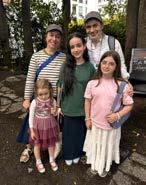


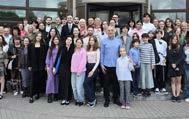
RALIYAH FROM THE WEST
BY HOWARD FLOWER, ICEJ ALIYAH DIRECTOR
ecently, in a modern conference room in Vilnius, the capital city of Lithuania, 86 Russian-speaking Jews from across Europe gathered for an intensive Aliyah seminar organized by the Jewish Agency for Israel (JAFI), ICEJ’s longtime Aliyah partner. The location carried profound significance. This city, once known as the “Jerusalem of the North,” was home to the great Gaon of Vilna, who revolutionized Jewish thought about returning to Zion. Nearly three centuries later, his vision was coming to life in the most practical way possible.
The Gaon, that towering eighteenth-century Talmudic genius, taught something radical for his time: that Jews shouldn’t wait passively for divine intervention but should actively begin their return to the Land of Israel. His concept of Atchalta De’Geulah— the beginning of redemption—insisted that human action from below would trigger divine response from above. Today, as antisemitism surges across Europe and Jewish families pack their belongings for Israel, this miracle is manifesting before our eyes.
The participants in the Vilnius seminar represented a microcosm of Western Jewry’s current reality. Among them were families from Germany, where Jews increasingly feel like “tourist attractions” in their birth country, as young Alon Kogan from Offenbach described before making Aliyah. There were participants from Latvia and Lithuania, where Jewish communities that once thrived now struggle with dwindling numbers. Ukrainian Jews displaced by war sat alongside Finnish and Estonian families, all united by a common decision: it was time to go home.
The four-day program moved powerfully between remembrance and action, between honoring the past and building the future. One evening, participants created a memorial display—two white tapers surrounded by dozens of tea lights—a moment of solemn reflection for the communities destroyed during the Holocaust. The next morning, young people in matching gray athletic wear led the entire group through team-building exercises, their energy and optimism filling the room. This is the duality of modern Aliyah: remembering why Jews must never be vulnerable again while actively building the solution.
The numbers tell an urgent story. Since October 7, 2023, over 60,000 Aliyah files have been opened. In France alone, where ICEJ has worked since 2010, there's a 53 percent increase in immigration to Israel this year. Surveys indicate that 38 percent of French Jews—approximately 200,000 people—are now considering making the move. Behind each statistic is a family, like Alison’s from Marseille, who explained: “I wanted to raise
my future children in a place where they could be proud of their Jewish identity without fear."
For over two decades, ICEJ has been building the infrastructure to support this modern exodus. The Naale program helps teenagers complete their high school education in Israel, with 90 percent choosing to stay permanently. Talia, a Frankfurt student, captured its significance perfectly: “My grandparents hid their Judaism in Ukraine. My parents rediscovered it in Germany. Now, I get to live it fully in Israel.”
In the Baltic states, ICEJ’s seasonal camps have reached over 1,000 young Jews, introducing them not just to Israeli culture but to practical pathways for making Aliyah. Since late 2022, the organization has sponsored flights for 250 olim (immigrants) directly from this region. Each flight represents families choosing hope over fear, future over uncertainty. Part of the Vilnius seminar included a public solidarity march through the city's historic streets, with participants carrying Israeli and Latvian flags—an act that demonstrated something crucial: this movement isn't happening in isolation. When families with young children joined elderly community members in that march, when participants wore shirts declaring their readiness to fight against antisemitism, they made a statement that echoes far beyond those cobblestone streets in Lithuania.
Yet for all these efforts, an unprecedented challenge looms. Jewish Agency chairman Doron Almog predicts Israel may welcome one million new immigrants in the coming years. The infrastructure needs—from flights to absorption programs to youth camps—are staggering. The ICEJ currently assists approximately 12 percent of all olim, but the need growing.
This is where partnership becomes essential. Every flight sponsored costs on average $1,000. Each youth camp requires funds for transportation. The preparatory seminars that give families practical and spiritual tools for successful integration need sustained support. Contributing to this mission means more than funding logistics; it means participating in an historical movement that the Gaon of Vilna envisioned three centuries ago.
Join the ICEJ in supporting Aliyah seminars like the one in Vilnius, flights, youth camps, integration programs, and more.


Your Israel Answer
Why the Gaza Ceasefire May Not Last
By Dr. Susan Michael, ICEJ USA President
In mid-October, we witnessed the return of the remaining 20 live hostages after 738 days of pure horror in Gaza, following a 20-point deal crafted by President Trump together with Prime Minister Netanyahu. Though the excitement was palpable throughout Israel, it was tempered by distrust. As Israel celebrated life and homecoming, several questions stirred beneath the joy: Will the ceasefire hold? Will Hamas honor its word—or exploit the moment for its own gain?
Signs of Trouble
Almost immediately, cracks began to show. Hamas has been dragging out the return of the remaining deceased hostages, claiming they are too deeply buried in rubble to be recovered quickly—a clear violation of the ceasefire agreement. And their recent statements indicate they have no intention of disarming, contrary to point three of Trump’s plan.
On top of that, no sooner had the peace deal been accepted and the IDF withdrawn past the yellow line than reports emerged that Hamas was executing innocent Gazans who spoke against the terror organization, including women and children. By late October, Hamas had crossed the yellow line, killing two IDF soldiers—breaching the ceasefire again.
But where is the outrage? Hamas’ brutality to its own people is ignored, and the media remains largely silent about the deaths of Israelis. Obviously, the world couldn’t care less about the Palestinian people. Its sole interest is in demonizing Israel.
Threat of Further War
In response to Hamas’ executions of dissenting Gazans and the apparent move of Hamas away from its commitment to disarm, President Trump has continued to threaten the complete eradication of the terrorist group. In addition, the governments of Saudi Arabia and the United Arab Emirates (UAE) have similarly threatened to pull out of the deal if Hamas is not disarmed.
While the ceasefire agreement calls for an international coalition to monitor and maintain the calm, there is only one force with the capability and intelligence required to disarm Hamas, and that is Israel. International and Arab forces are ill-equipped to do the job. Therefore, Israel will have to sacrifice any improvement in the court of public opinion she has enjoyed after the ceasefire to return to war with Hamas and complete the job.
Hamas Is the Obstacle to Peace
A terrorist group like Hamas cannot be trusted, no matter what they may say or sign in English. They are a terrorist organization driven by a jihadist ideology that views peace agreements as temporary and only for the purpose of rearming and rebuilding strength before returning to the mission of jihad. And even if the US-led international coalition actually succeeds in disarming the group, the leopard will not change its spots. It will go underground (quite literally, as much of their tunnel complex is still in place) and quietly work from within society to build resistance and opposition to a peaceful Gaza. This is why the group needs to be completely removed and not just disarmed.
So, with the return of the hostages and God’s mercy in keeping those 20 men alive for two years, we celebrate with all of Israel—but with caution. The psalmist’s words in 55:21 capture Hamas’ true intent: “The words of his mouth were smoother than butter, but war was in his heart.”
A Call to Discernment
The Bible reminds us that not all who promise peace mean it. Ezekiel and Jeremiah, who prophesied before and during the Babylonian exile, used almost identical language to expose those who sought to deceive Israel—saying, “‘Peace!’ when there is no peace” (see Ezekiel 13:10 and Jeremiah 6:14). Ezekiel prefaced his warning with God’s words, “They have seduced My people,” while Jeremiah wrote, “They have also healed the hurt of My people slightly.”
Though originally addressed to false prophets, their warnings apply to us. We must discern carefully between genuine peace from God and false assurances from men. Political agreements may create a sense of calm, but true peace can only come from Him.
Although the days ahead are uncertain, God calls us to be watchful and prepared, to stay awake and be clear-minded, discerning, and shrewd. Jesus warned His disciples that He was sending them out as “sheep in the midst of wolves” so they must be “wise as serpents and innocent as doves”(Matthew 10:16) and guard against deception (Matthew 24:4).
His message is just as urgent today.
A Call for Prayer
Hamas is just one in a long line of evil men who sought to wipe out the Jewish people throughout history. The persistence and mutating nature of this evil has allowed it to crop up with a new face for new generations. In today’s context it has taken on the face of anti-Zionism, and its goal is the eradication of Israel. To do so, it uses lies and propaganda to demonize the people of Israel and turn the nations against the Jewish State.
This in itself should cause us to pause and reflect upon the true nature of Hamas and Israel’s need for robust and proactive selfdefense. On October 6, 2023, Israel had a strong border and a ceasefire agreement with Hamas. That did not stop the attack on October 7, which Hamas thought would be so successful it would be the end of Israel.
This time around, Israel needs more than a border and a ceasefire. It needs the removal of Hamas and the jihadist brainwashing that has gone on for decades in order to rebuild schools and a society in Gaza that cherishes peace.
This requires much prayer for the miraculous levels of courage, wisdom, innovation, and international collaboration needed for Gaza and Israel to be secured and freed from this evil.
Conclusion
To navigate these days wisely, we must be rooted in Scripture—anchored in truth and comforted by His promises—and remain steadfast in our defense of Israel and His people.
Yes, the hostages are home. But the fight for truth continues.
Bless Those in Need
This Hanukkah and Christmas Season
Though the war with Hamas has hopefully ended, the people of Israel face a long road to recovery and rebuilding. Their enemies have not given up—but neither must we. This Christmas season, as we celebrate the birth of the Prince of Peace, let us stand with Israel in prayer and in action. Your special gift today will help rebuild homes, restore hope, and remind the people of Israel that they are not alone.
Each of the following initiatives offers a tangible and life-changing way to bring healing, safety, and hope to people across Israel who have suffered deeply since October 7. Your support directly transforms lives.
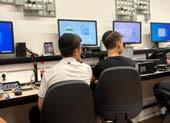
Computers Repaired by Youth-at-Risk and Given to Needy Families
Cost per computer: $140
Share: $5–$25
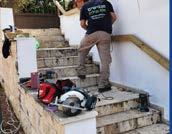
Home Repairs and Upgrades for Victims of Terror
Cost per home: $1,400
Share: $5–$100

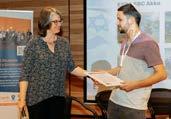
Mentoring a New Immigrant Family for One Year
Cost per family: $2,000
Share: $100–$500
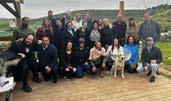
Trauma Group Therapy Sessions / Retreats
Cost per group: $16,000
Share: $100–$500

Building Additional Trauma Treatment Rooms (4 needed)
Cost per room: $21,500
Share: $500
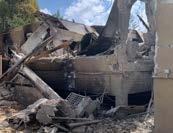
Rebuilding the Be’eri Youth Activity Center
Still needed: $385,075
Share: $500–$1,000
www.icejusa.org/crisis
